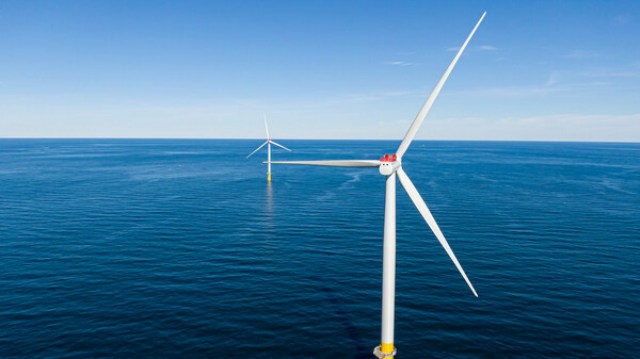European energy companies, including Denmark’s Orsted, are expected to announce write-downs on their U.S. offshore wind investments following similar actions by BP and Equinor. These impairments come as the industry grapples with soaring costs, rising inflation, interest rate hikes, and supply chain disruptions, Reuters news report said.
Orsted, the world’s largest offshore wind developer, had previously indicated potential impairments of 16 billion Danish crowns ($2.3 billion) on its U.S. offshore projects due to supply chain challenges, escalating interest rates, and a lack of new tax credits. Orsted’s third-quarter earnings report, due to be released this week, is eagerly anticipated as it may shed light on the extent of these write-downs.
The surging inflation and interest rates, coupled with supply chain delays, have cast doubts on the ambitious plans of U.S. President Joe Biden and several states to transition to offshore wind energy as a means of reducing carbon emissions and replacing fossil fuels.
Orsted had already cautioned that it would write down at least 5 billion Danish crowns, with the possibility of reaching 16 billion Danish crowns if U.S. interest rates surpass a certain threshold. Analysts suggest that the 5 billion Danish crowns impairment may not be sufficient, considering the challenging market conditions.
BP recently announced a $540 million write-down in the third quarter related to wind projects, following the rejection of better terms for the projects by New York state officials. This decision was based on the impact of “inflationary pressures and permitting delays.”
Equinor, BP’s partner in the New York offshore wind ventures, recorded a $300 million impairment on the projects.
It is anticipated that BP, Equinor, and Orsted may be compelled to cancel some power contracts in New York, as has been done by other offshore wind developers in states like Massachusetts and Connecticut.
In Massachusetts, two offshore wind developers, SouthCoast Wind and Commonwealth Wind, agreed to terminate agreements that would have provided around 2,400 MW of energy. Avangrid, the majority owner of SouthCoast Wind, also canceled a power contract for its proposed Park City offshore wind farm in Connecticut.
However, it’s important to note that these cancellations have been undertaken to avoid significant financial write-offs, and they are not indicative of a waning commitment to offshore wind projects. Companies like Avangrid still plan to deliver the first power from their respective projects in the near future.
The offshore wind sector remains a pivotal part of the clean energy transition, despite the financial challenges and uncertainties it faces, with companies and governments continuing to push for a more sustainable energy future.

